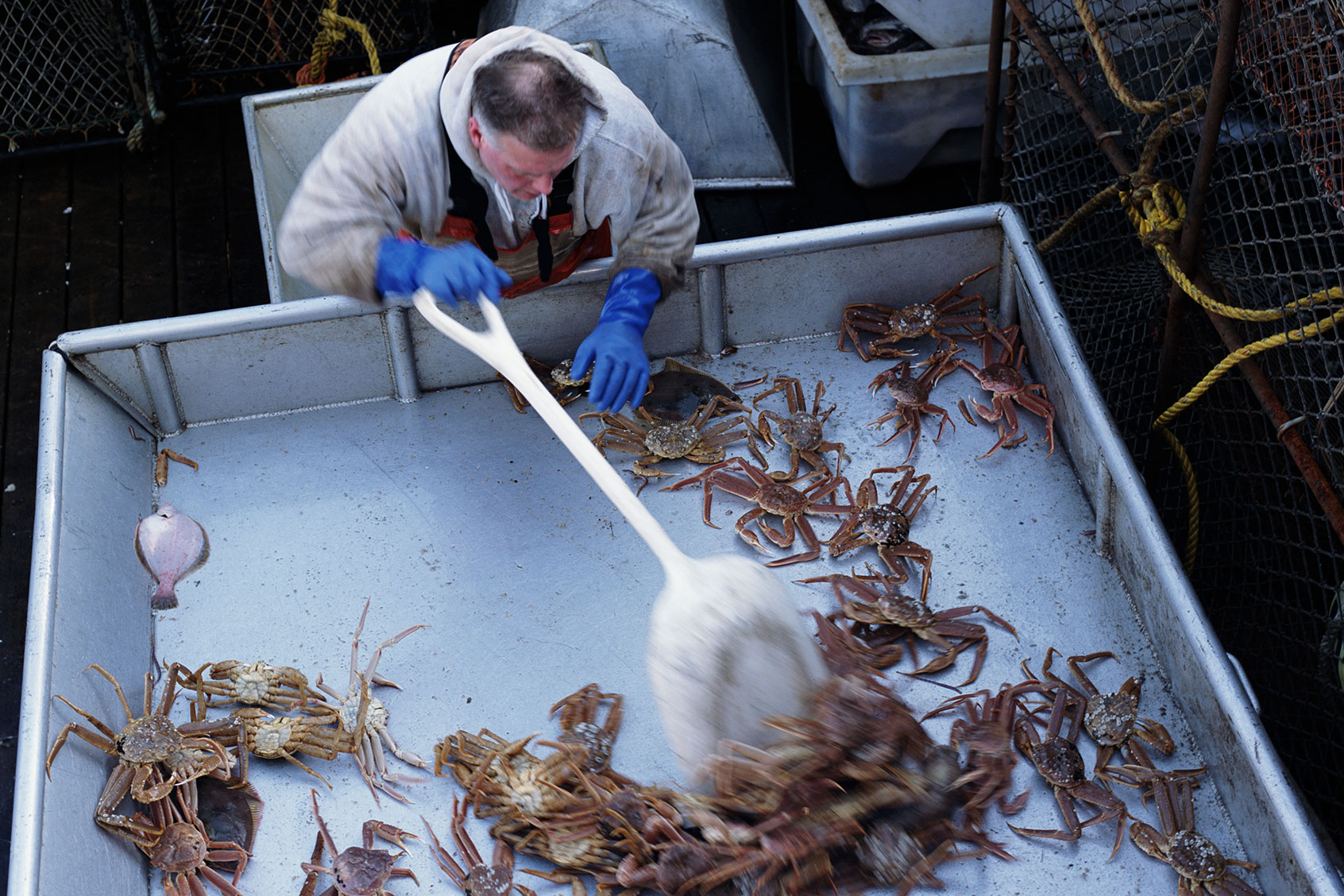The Bering Sea was once full of snow crabs (Chionoecetes opilio), providing an abundant food source worth more than a quarter-billion dollars. But a few years ago, the crab populations crashed, with more than 90% disappearing, an estimated 47 billion animals vanishing. In 2022, crab fishing season was cancelled. Scientists hypothesized at the time that climate change was the culprit; now a recent study in the journal Nature Climate Change has confirmed it.
Marine biologists from the U.S. National Oceanic and Atmospheric Administration analyzed temperature at the bottom of the sea, algae bloom levels under the sea ice, ice cover and the makeup of Arctic snow crab communities from 1972 to 2022. In the process, they determined that the snow crab population has dramatically decreased as a result of heating from burning fossil fuels.
"The warming and loss of Bering Sea sea ice that caused the snow crab collapse wasn't natural climate variability, but instead was the consequence of human-caused climate change," lead author and NOAA scientist Dr. Michael Litzow told Salon. Although the negative impact on snow crab fisheries is short-term for now, that may not remain the case.
"The chance of getting very Arctic conditions in the traditional fishing grounds has gone from about 56% every year in the preindustrial climate to about 8% in the current climate," Litzow said. "At the same time, the odds of getting very subarctic / ice-free conditions have increased about 200-fold. So the time to plan for the loss of Arctic conditions in the traditional area for this fishery is now."
The study noted that as snow crabs struggle to adapt to Arctic sea conditions becoming more similar to sub-Arctic conditions (a process known as borealization), the business interests that invest in crabbing will likewise need to evolve — or go extinct.
"The rapid borealization we demonstrate here highlights the need for adaptation planning by fisheries managers and stakeholders," Litzow said. "By placing this fishery collapse in the context of a human-induced, wholesale ecosystem transition, our results may give managers and stakeholders a new framework for recognizing and adapting to the speed and magnitude of change that is occurring in one of the most productive fisheries ecosystems in the world."
Read more
about climate change


